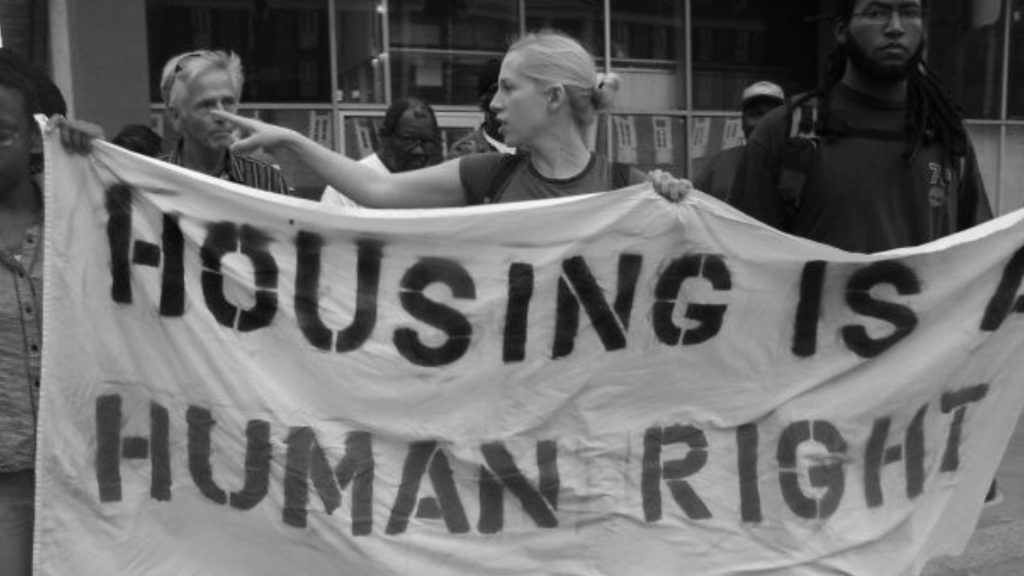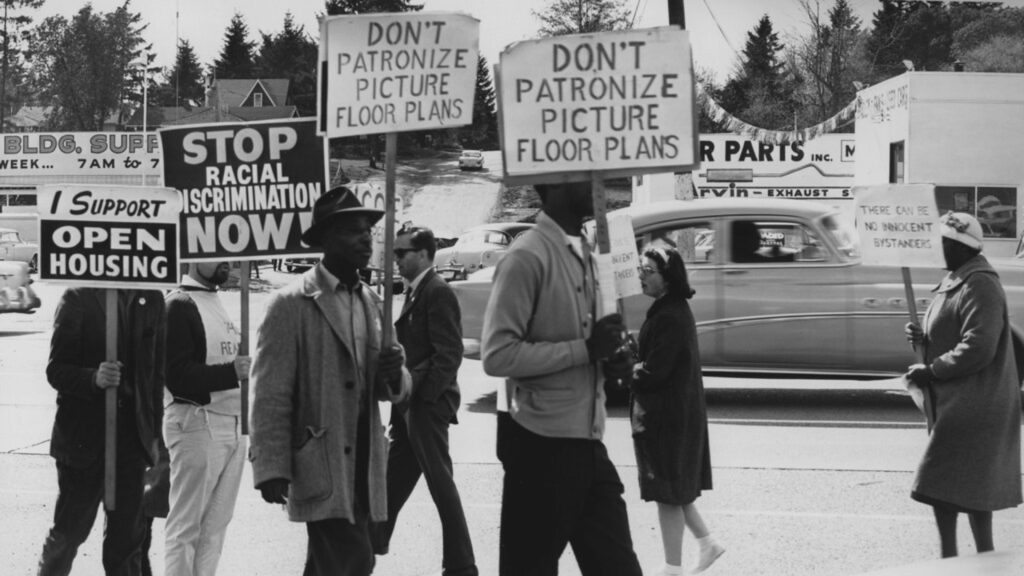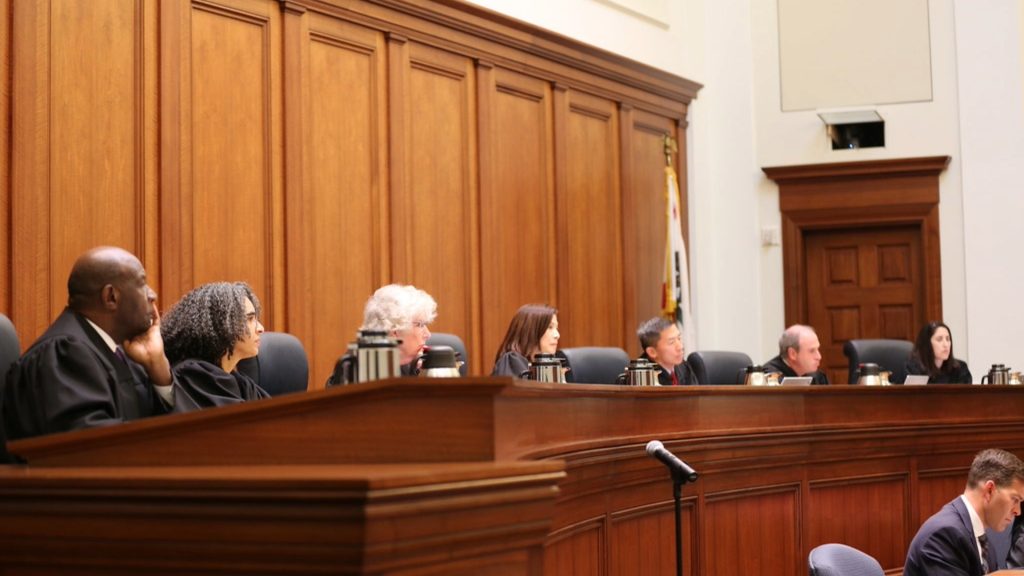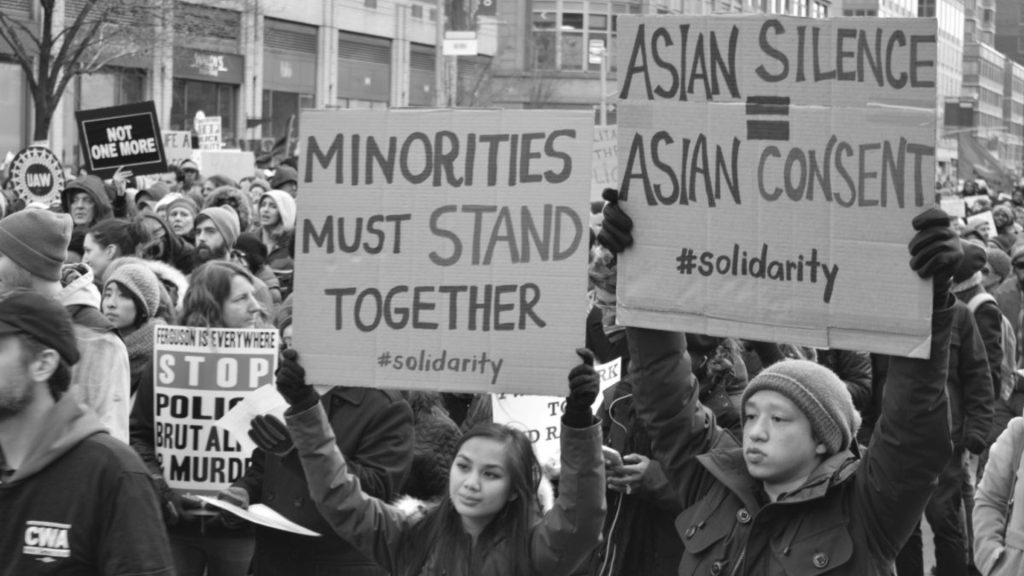In a recent development, a federal court has dismissed a racial discrimination lawsuit filed by three Black real estate investors in Houston. The investors claimed they were denied the opportunity to purchase condominiums in a new community development that catered to Asians. The case has sparked discussions about fair housing practices and the challenges in proving discrimination.
Black Investors Allege Discrimination In Houston Condominium Purchase
James Ra-Amari, his wife Misty Ra-Amari, and Misty’s sister Rosemary Afful filed a lawsuit in September 2022, alleging that Houston-area realtor Josie Lin and associate property managers, including RE/MAX, conspired to prevent them from buying three new units at Grand West Condominiums in the suburb of Katy. The lawsuit sought undisclosed punitive damages for emotional distress while claiming violations of fair housing laws.

The plaintiffs argued that the complex’s promotional materials, which hailed it as a “new option for Chinese and Asian communities” and touted it as “a new option for a safe and simple Asian life,” combined with Lin’s alleged comments that “all the current owners were personal friends and knew each other,” established discrimination. The lawsuit named several defendants, including Lin’s company, UMRE, and two real estate brokerages, RE/MAX and EXP Reality.
Judge Hittner Dismisses Lawsuit, Citing Lack Of Legal Standing
On February 27, U.S. District Judge David Hittner dismissed the civil action, ruling that the case lacked the proper legal standing under the federal Fair Housing Act. The dismissal was made with prejudice, suggesting that the plaintiffs cannot appeal the ruling to a higher court based solely on the merits of the case.

Judge Hittner’s ruling focused more on whether fair housing laws had been violated rather than on whether the Black investors had faced outright racism when they tried to buy property in an area of Houston that was being marketed specifically to Asian residents. The defendants argued that because the plaintiffs, as investors, never made a cash offer and did not intend to live in the units, they did not meet the criteria for discrimination under the Fair Housing Act.
Ruling Highlights Loopholes In Establishing Fair Housing Practices
Attorney Justin Moore, who represented the Black investors, stated the ruling, noting that the case underscored the loopholes in establishing fair housing practices nationwide. Moore emphasized that real estate investment has historically been a pathway for many Americans to build wealth and that property, at its essence, is an investment, whether one lives in it or not.

The dismissal of the lawsuit has raised concerns among fair housing advocates, who argue that the ruling highlights the challenges in proving discrimination in real estate transactions. The case has also sparked discussions about the need for more comprehensive fair housing laws and enforcement mechanisms to ensure equal access to housing opportunities for all individuals, regardless of their race or background.
Lack Of Business Relationship Cited As Key Factor In Dismissal
In his ruling, Judge Hittner decided that the plaintiffs lacked legal grounds to file the suit because they had failed to establish a business relationship with Lin in the first place and that Lin was never an agent “acting on their behalf.” This lack of connection also extended to the other defendants in the case, ultimately leading to the dismissal.

The court’s decision to dismiss the case based on the lack of a business relationship between the plaintiffs and the defendants has raised questions about the scope and applicability of fair housing laws in cases involving real estate investments. Some legal experts argue that the ruling sets a potentially dangerous precedent, as it may make it more difficult for individuals to challenge discriminatory practices in the real estate market.
Plaintiffs’ Attorney Emphasizes Importance Of Real Estate Investment For Building Wealth
In his statement following the ruling, attorney Justin Moore highlighted the significance of real estate investment as a means for Americans to build wealth. Moore argued that the plaintiffs’ endeavors to invest in the Grand West Condominiums aligned with this tradition and that property, at its core, is an investment, regardless of whether one lives in it or not.

Moore’s statement underscores the importance of ensuring equal access to real estate investment opportunities for all individuals, as it can serve as a powerful tool for building intergenerational wealth and narrowing the racial wealth gap. The dismissal of the lawsuit, however, has raised concerns that the court’s decision may inadvertently perpetuate systemic barriers to wealth creation for marginalized communities.
Marketing Materials Spark Debate Over Targeted Advertising In Real Estate
The lawsuit filed by the Black investors drew attention to the marketing materials used to promote the Grand West Condominiums, which specifically targeted Chinese and Asian communities. The plaintiffs argued that the narrow focus of the marketing materials, combined with the alleged comments made by the realtor, established discrimination.

The case has ignited a broader debate about the use of targeted advertising in the real estate industry and its potential to perpetuate housing segregation and discrimination. While some argue that targeted marketing is a common practice and does not inherently violate fair housing laws, others contend that it can create barriers to equal access to housing opportunities and reinforce patterns of racial and ethnic segregation.
Fair Housing Advocates Call For Stronger Enforcement Of Anti-Discrimination Laws
In light of the dismissal of the lawsuit, fair housing advocates have renewed calls for stronger enforcement of anti-discrimination laws in the real estate industry. They argue that the current legal framework may not be sufficient to address the complex and often subtle forms of discrimination that can occur in the housing market.

Advocates emphasize the need for more proactive measures to identify and prevent discriminatory practices, such as increased testing and investigation of potential violations, as well as more robust education and outreach efforts to inform consumers of their rights under fair housing laws. They also call for greater collaboration between government agencies, community organizations, and the real estate industry to promote fair housing practices and ensure equal access to housing opportunities for all.
Case Highlights Challenges In Proving Discrimination In Real Estate Transactions
The dismissal of the lawsuit filed by the Black investors in Houston underscores the challenges that individuals may face in proving discrimination in real estate transactions. The court’s ruling, which focused on the lack of a business relationship between the plaintiffs and the defendants, has raised questions about the burden of proof required to establish violations of fair housing laws.

Legal experts note that proving discrimination in real estate transactions can be difficult, as it often involves demonstrating intent or disparate impact, which can be challenging to establish in court. The case in Houston highlights the need for clearer guidance and standards for evaluating fair housing claims, as well as the importance of thorough documentation and evidence gathering for individuals who believe they have been subjected to discriminatory practices.
Dismissed Lawsuit Sparks Conversations About Diversity And Inclusion In Real Estate
Although the lawsuit filed by the Black investors in Houston was ultimately dismissed, it has sparked important conversations about diversity and inclusion in the real estate industry. The case has brought attention to the ongoing challenges that minority communities may face in accessing housing opportunities and the need for greater efforts to promote equity and inclusion in the housing market.

Industry leaders and advocates are calling for increased diversity and cultural competency training for real estate professionals, as well as the development of more inclusive marketing strategies and community outreach efforts. They argue that promoting diversity and inclusion in the real estate industry is not only a moral imperative but also a business necessity, as it can help to expand the customer base and better serve the needs of an increasingly diverse population.
Importance Of Fair Housing Education And Awareness For Consumers
The case of the Black investors in Houston highlights the importance of fair housing education and awareness for consumers. Many individuals may not be fully aware of their rights under fair housing laws or may not know how to recognize and report potential discriminatory practices.

Fair housing advocates emphasize the need for increased consumer education and outreach efforts to help individuals understand their rights and the resources available to them if they believe they have been subjected to discrimination. This may include community workshops, online resources, and partnerships with local organizations to disseminate information and provide support to those who have experienced housing discrimination.
Impact Of Housing Discrimination On Minority Communities And Wealth Building
The dismissed lawsuit in Houston serves as a reminder of the broader impact that housing discrimination can have on minority communities and their ability to build wealth through real estate investment. Studies have shown that minority households, particularly Black and Latino families, have historically faced significant barriers to homeownership and have been disproportionately affected by discriminatory housing policies and practices.

Experts argue that addressing housing discrimination and promoting equal access to homeownership and real estate investment opportunities is critical for narrowing the racial wealth gap and promoting greater economic mobility for minority communities. This may require a comprehensive approach that includes policy reforms, increased enforcement of fair housing laws, and targeted programs to support homeownership and wealth building in historically disadvantaged communities.
Role Of Real Estate Industry In Promoting Fair Housing Practices
The case of the Black investors in Houston also highlights the important role that the real estate industry itself can play in promoting fair housing practices and addressing discrimination. Real estate professionals, including agents, brokers, and property managers, have a legal and ethical obligation to uphold fair housing laws and to provide equal service to all clients, regardless of their race, ethnicity, or other protected characteristics.

Industry leaders are calling for increased training and education for real estate professionals on fair housing laws and best practices, as well as the development of clear policies and procedures for addressing potential violations. They also emphasize the importance of fostering a culture of inclusion and equity within the industry, where diversity is valued and all individuals are treated with respect and dignity.
Moving Forward: Addressing Housing Discrimination And Promoting Equity
While the dismissal of the lawsuit filed by the Black investors in Houston may be seen as a setback for fair housing advocates, it also serves as a call to action for addressing housing discrimination and promoting greater equity in the real estate market. This will require ongoing efforts from policymakers, industry leaders, community organizations, and individuals to identify and address the root causes of discrimination and to create a more just and inclusive housing system.

Moving forward, it will be important to continue to raise awareness about fair housing rights and to provide resources and support for those who have experienced discrimination. It will also be critical to advocate for policy reforms and increased enforcement of fair housing laws, as well as to promote greater diversity and inclusion in the real estate industry. By working together and taking a comprehensive approach, we can make progress toward ensuring that everyone has equal access to safe, affordable, and equitable housing opportunities.
The Fight For Fair Housing Continues
The dismissal of the racial discrimination lawsuit filed by the Black investors in Houston serves as a reminder that the fight for fair housing is far from over. While progress has been made in recent decades, housing discrimination remains a persistent problem that continues to limit opportunities and perpetuate inequality for minority communities.

As we move forward, it is important to remember that the struggle for fair housing is not just a legal or policy issue, but a moral imperative that affects the lives and well-being of countless individuals and families. By continuing to raise awareness, advocate for change, and work towards greater equity and inclusion in the housing market, we can help to create a more just and equitable society for all. The fight for fair housing may be long and challenging, but it is a fight that we cannot afford to lose.






